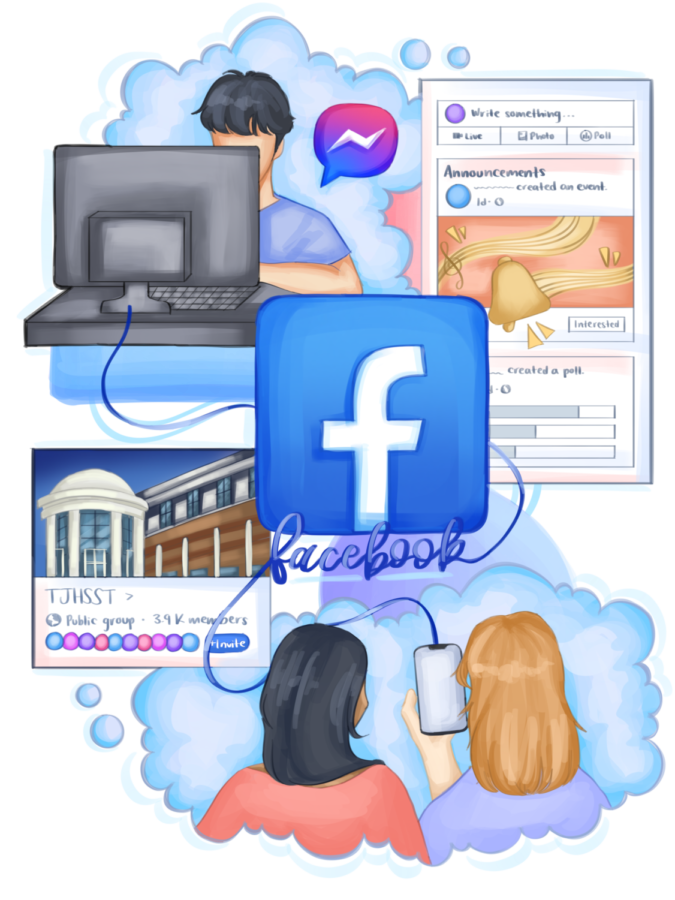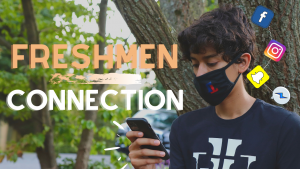Lead Editorial: Let’s face it
Facebook may be considered a quintessential part of the Jefferson experience, but is it as important as we make it out to be?
Facebook connects us to each other and the school in a unique way, but this interconnectedness doesn’t have to rely solely on a social media platform.
February 4, 2022
From the January 2021 Issue of tjTODAY
Facebook has long been an integral part of the Jefferson experience – everything from information about clubs to pictures of bananas and other consumables can be found in various Jefferson-focused Facebook groups. It’s considered a rite of passage – one of the first things an underclassman will hear is to “get a Facebook” or “you need a Facebook”. However, with recent events involving Facebook, from the intrusion of outside influences into Jefferson groups to general breaches of privacy facilitated by usage of Facebook, it becomes important to ask – does Jefferson really need Facebook?
While Facebook may be a hub for communication, it’s also proved to be a hotbed of controversy. Notably, discussions surrounding the PTSA have embroiled students in heated discussions surrounding issues not even involving TJ itself, such as LGBTQ+-related subjects, creating hostility even for those not directly affected by the discourse. The Jefferson bubble on Facebook is meant to be a safe one, for Jefferson students to share news about clubs or events, and these discussions put that in jeopardy.
Additionally, Facebook itself presents its own security concerns. The app has been known to track users’ data extremely closely for various ends. While some of those may be more positive, others, like tracking users’ tendencies even outside of Facebook to curate advertisements, are much more questionable. Facebook also requires its users to establish and maintain an online presence, presenting difficulties regarding safety and privacy concerns, which are a major deterrent to users joining the platform in the first place.
However, overreliance on Facebook also creates a culture that encourages its use. Many students at Jefferson feel forced to get a Facebook because they felt left out of clubs they want to join. Quite simply, too many clubs rely on Facebook as their sole method of sharing information, leaving out students who don’t yet have the platform. And for those same students, being encouraged to get Facebook by peers in addition to knowing that they’re missing critical information about their clubs creates a mounting pressure to join the site.
But what other options are there for a platform as central as Facebook? Chat platforms like Discord or Slack allow clubs to have centralized communication in addition to general discourse with members, without all of the additional noise on Facebook. On the other hand, implementing these features into ION would circumvent third-party software entirely, allowing club environments to be entirely under the TJ domain, making it more accessible, as all Jefferson students have Intranet accounts. When it comes to our overreliance on Facebook, we can use or implement more methods to share information besides Facebook. For example, using email lists or making announcement requests on the weekly news or morning announcements not only allows for more coverage, but also allows students without Facebook to hear about events. Groups like TJHSST Bananas can live on, but the necessary information for students should be available elsewhere.
While Facebook provides multiple benefits unrivaled by other platforms, given its flaws, it should not be a necessity for any student. The Jefferson community should begin to utilize platforms to supplement Facebook’s usefulness while allowing students without an account to stay in the loop.









